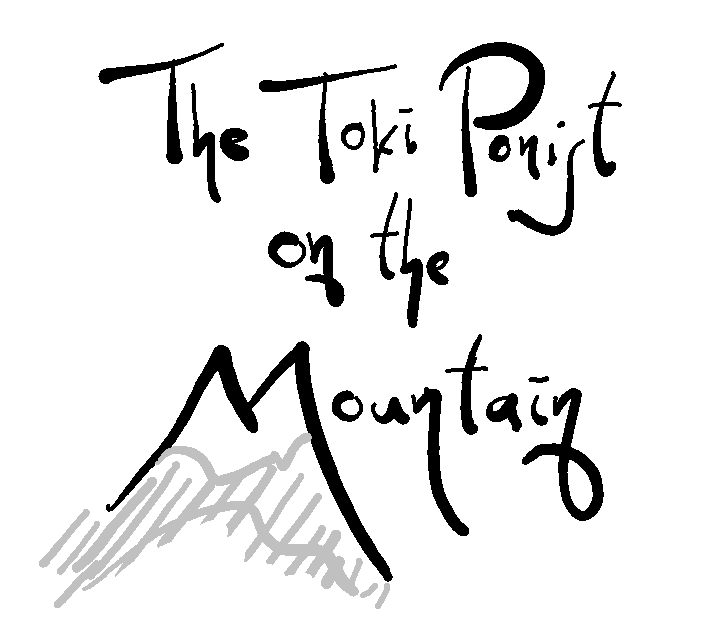ilo kipisi li wile ala kipisi e ona.
mi insa li wile ala pilin e mi.
A knife does not need to cut itself. The self does not need to notice itself. — Toki Ponist Pu
July 2021
These are the words as recovered from the awoken well:
ona li toki e ni:
mi wawa ala.
mi mani ala.
mi jan wan taso.
ona li toki e ni:
mi li wan.
sina en sina mute li tu.
ona li mute. mute la, sina en mi li ken toki lon sitelen lape pi jan ante.
jan Sipi li toki e ni:
ona li lukin e linja pi ma en sewi.
taso ona li ken tawa kon ala.
Here follows a relaxed translation:
Janwanta floats by Tipi on a raft in a calm stream. He wails: “I am sad. I am weak. I am unworthy. I am alone.” Tipi walks along the shore of the stream. He answers: “In the river you see only yourself. After me, comes you and we, then it and they. After that we can meet in the dreams of others.” Janwanta says: “What?” Tipi says: “The top of the tree also likes to think it is a bird when it looks over the lands, but it still cannot fly.”
Associative musings:
Looking down from a mountain at the people driving their little cars along thin roads, it is already sometimes hard to forget that in every car there is at least one person suffering their life. From afar, the long line of cars seems to be as conscious as a string of ants at best and eddies of water in a creek at worst. How easy is it then to dismiss the consciousness of other complex systems such as the sun or indeed the eddies in a creek.
And do we, driving in our cars, realize how we appear to someone standing on top of that mountain we drive by? When we do, we will find it hard to understand how we look in a system with all other cars and humans going about their business. The mountain is of course a metaphor for any higher perspective. Without ever having taken the perspective it is near impossible to understand how we appear and whether from that perspective our consciousness is appreciated at all. And who can blame the observer, since most of our behavior is habitual and therefore not conscious at all but rather unaware and unconscious.
Building up perspectives requires training and is energy intensive. Whenever we feel our energy lacking or we are pressed to make a decision, there is a tendency to drop towards lower perspectives. If you are in a perpetual internal dialogue about yourself you are in the ground state, which you are hard to get out of unless you get a jolt of energy.
Read a newer koan (You have to earn simplicity.)
Read an older koan (If sleeping is nice, why is dying then so scary? Sleeping without end is not a problem for your sleeping self.)
